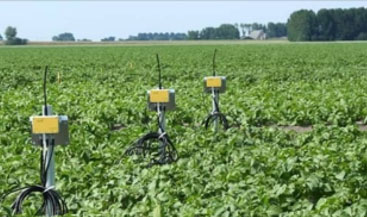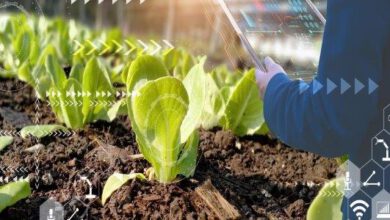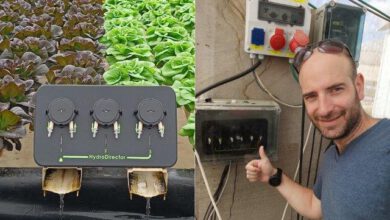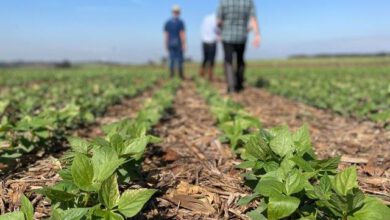Israeli startup technologies assits agriculture development
Sensor-based innovations are helping farmers grow more food
David Shamah


As the world’s population grows, farmers are using technology to “tease” more crops out of the ground. Increasingly, farmers are using sensors to figure our what to grow, when and where to grow it, and what to do in order to increase yields. The trend is part of the recent growth of precision agriculture technology by the agricultural industry, which utilizes sensors to create a bank of big data that will ensure maximum benefits from the soil.
Farming equipment manufacturer John Deere, for example, has come out with a soil monitoring system that uses sensors to gauge water levels in the soil, in order to determine if, and how much, farmers need to water their crops in order to achieve maximum yields. Ag Leader Technologies, one of the largest precision agricultural firms in the US, has sensors that measure the nitrogen level in soil where wheat is to be planted, enabling farmers to avoid the overapplication of nitrogen. And Topcon makes a sensor-based system that enables farmers to monitor plant conditions and apply fertilizer and other inputs only as needed.
All that sensor technology development is good news for farmers — and it’s good news for Dr. Shani Keysar, CEO of Sol-Chip, an Israeli startup that uses solar power for sensors that are “planted” in the field, allowing the “harvesting” of solar energy to power sensors, and replacing traditional batteries that need to be replaced and disposed of at specific intervals.
There are numerous solar-based energy systems to power field sensors, but Sol-Chip has a twist on the traditional solar cell. Instead of a solar power “package” that gets added to the sensor in order to harvest and store power to keep the data flowing, Sol-Chip’s technology integrates solar harvesting and energy conversion into the manufacturing process, so that solar energy becomes “native” to the sensor’s components. With the chip’s energy source a part and parcel of the sensor’s components, farmers can basically “plant” their sensors and forget them, without the need to install external solar cells, which, Keysar said, can be a complicated affair. Farmers also won’t need to worry about replacing batteries or changing sensors when they run out of power.
“By 2017, the market for precision agriculture technology sensors will be over $800 million,” said Keysar, and that doesn’t even include the array of scenarios where Sol-Chip’s technology can be put to use — powering “smart city” perimeter alarms or cameras, outdoor signage, hand-held devices, and so much more.
Before that, though, Keysar is concentrating on the agricultural space — and has been spreading the word on the efficacy of the system. In one test project Sol-Chip was involved in, said Keysar, the system was installed in agricultural watering systems for Netafim, which makes automatic sprinkler and irrigation systems for commercial crops. In the past, the Netafim systems relied on the small batteries embedded in the sensors that trigger when watering should take place, depending on time of day, weather conditions, etc. The batteries generally ran out after a year or less of deployment, requiring replacement of the sensors — an expense, as well as a hassle, requiring the dispatching of a worker to do the replacement work.
Using sensors embedded with Sol-Chip’s battery power system, which draws much of its energy from the sun, “the sprinkler systems will work almost indefinitely, without the need to change batteries or sensors,” said Keysar. The Sol-Chip batteries can save dairy farmers a pretty penny as well; farmers whose cows are equipped with RFID tags that keep track of their health and status will be able to dispense with the half-yearly ritual of swapping the tags. “If each tag needs to be replaced even once a year and each costs a dollar, and a farmer has 10,000 heads of cattle, you can figure out the savings” — not to mention the time, effort, and energy that farmers save using the Sol-Chip devices.
Keysar has been traveling throughout the US as part of an agritech roadshow sponsored by The Trendlines Group, which took five Israeli agriculture technology firms to five cities across the US to speak to investors and potential partners, in order to bring Sol-Chip’s message to the world. The strategy seems to be working: Last month, Sol-Chip was the Technical Development Award Winner in the 2013 IDTechEx Energy Harvesting & Storage and Wireless Sensor Networks Event, the most important worldwide event on energy harvesting and storage technologies.
“We were very honored to receive the award,” said Keysar. “We have succeeded to integrate solar cells with the semiconductor industry. The result is that, from now on, any electronic device can harvest its own energy from the environment and become a maintenance-free, autonomous device which contributes to a cleaner environment. This is one more step towards a world that is cleaner, greener, and less energy-dependent.”




